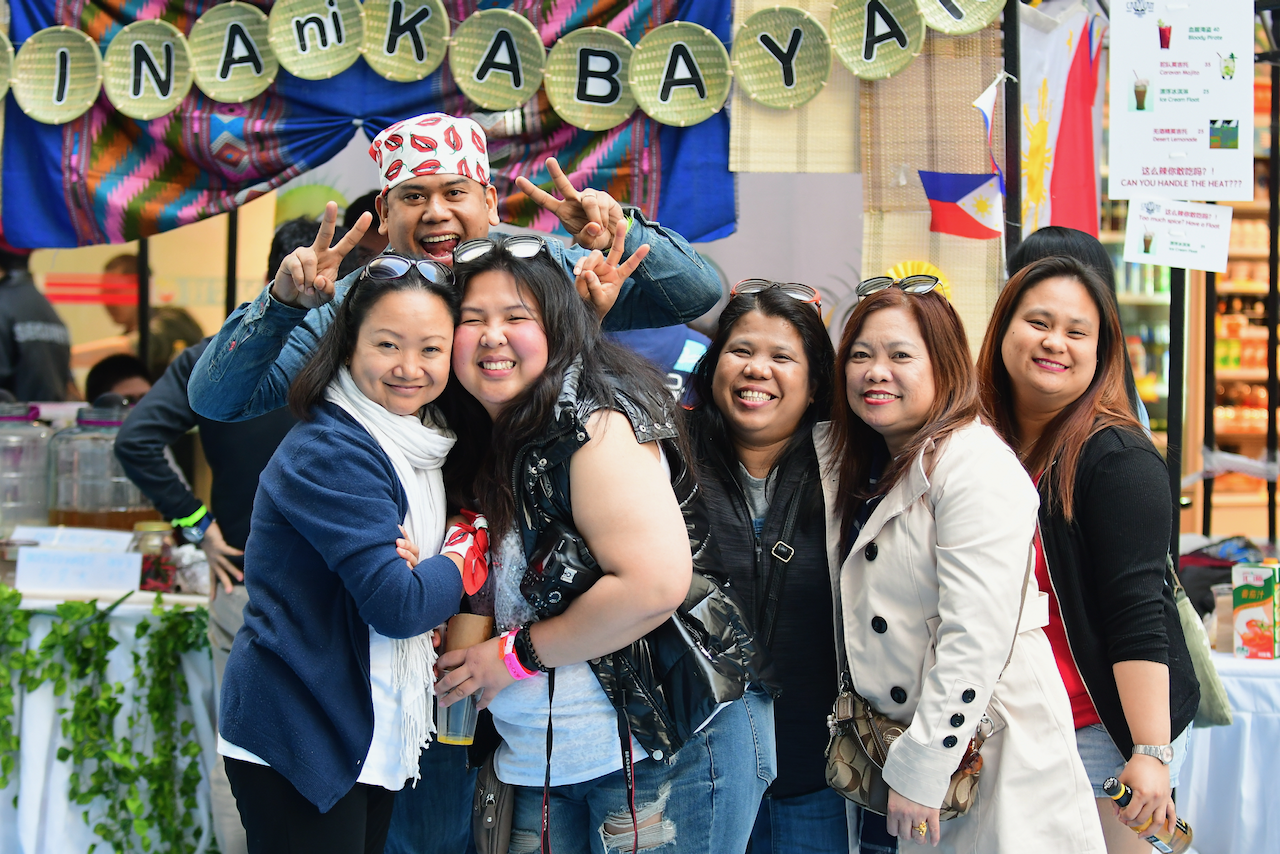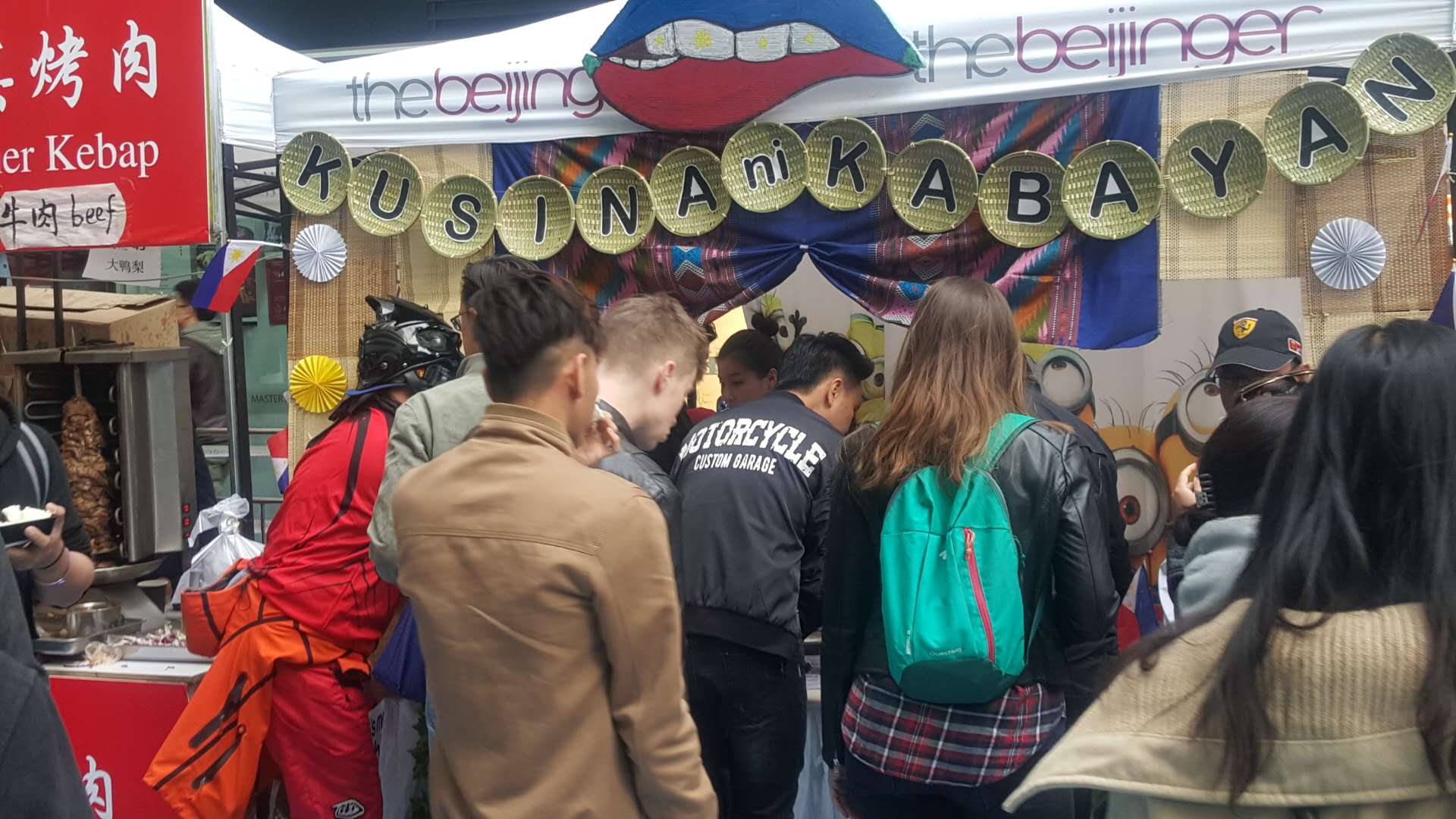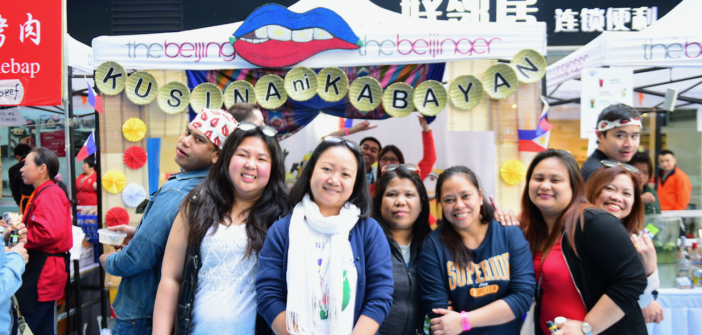When the Beijinger announced their first ever Hot & Spicy Festival, one community group thought of it as a perfect opportunity to gather and promote their country’s products. Kusina ni Kabayan (“Kabayan’s Kitchen” in Filipino) started out as a WeChat community group of Filipino expats who long for their foodstuff and native cuisine, but progressed as one of the strong contenders at the festival despite not being a restaurant.
We caught up with Perlita Pengson, the owner of the community group, and asked her how they put the Philippines in the spotlight at the festival.

What prompted you to set up this WeChat group?
Pengson: Even though there’s a lot of Filipino chefs in Beijing, there are no Filipino restaurants or stores here. So when I crave for native delicacies I usually contact those chefs and buy their products. Last year, I created a WeChat group solely for that reason and named it “Kusina ni Kabayan” or Kabayan’s Kitchen (“kabayan,” Filipino for “compatriot”) in English. My friends who have the same cravings also wanted to join that group as well. So from the 10 original members of the Kusina group, now we have grown to more than 230 after the Hot & Spicy Festival!
What prompted you to join the Hot & Spicy Festival?
Pengson: I’m a risk-taker and realized that the festival is the right opportunity for us to promote Filipino cuisine, as well as give chance to our members to organize an event [the booth]. Prior to signing up for the event, I made sure that the members and volunteers knew the purpose of the group: to support Filipinos with small food businesses and help them promote their products.

You still managed to organize the booth despite not having the resources other restaurants have. How did you pull off your booth? What were the challenges that you’ve faced?
Pengson: Our WeChat group is essentially a community of talented Filipinos and I know a lot of them who can really deliver and have the skills and passion for helping others. The Hot & Spicy Festival is the first and biggest event that we’ve joined in. We were quite nervous at first because we’re not a fully fledged restaurant, hence we don’t have enough equipment and other materials. Another issue was funding, but our members helped us fundraise and find sponsors.
After we secured the necessary documents and funding, I assigned several volunteers to lead different teams. Lorena Zhao and Gandy Gulaiman led our design team and made sure our booth decorations and other branding materials would stand out. Thea Trani coordinated with our chefs while Roxanne Monalim contacted Filipino sellers across China. Yes, we invited Filipino sellers from other Chinese provinces! Meanwhile, JR Torres took care of our photography and helped with food preparation, and Cecil Cagape organized the ordering and delivery of our food equipment. These Filipinos have their respective day jobs but still dedicated time to make our booth possible.
The people who cooked our dishes are chefs by trade and they accept catering services. If you loved our sisig (pork seasoned with lime and chili peppers), Jason Eugene Sagun did it, together with his wife. Our Bicol Express (pork stew with long chili, coconut milk, and shrimp paste) specialty was made by Ana Liza Siman, who can’t eat spicy food! The spicy longanisa (Filipino-style sausage) was made by Tianjin-based entrepreneur Roger Esguerra. The tasty humba dish (southern Philippine version of adobo) that we served was prepared by Gilbert San Jose, while the unique Don’t Be Silly, Eat Sili (chili) Ice Cream was specially made by our chef coordinator, Thea Trani. Our samalamig (Filipino refreshments) were prepared by JR Torres, who used to be a barista in the Philippines.
You mentioned that there were other sellers from across China. Tell us how you came up with that idea.
Pengson: The Kusina ni Kabayan community got bigger because the members invited their Filipino friends from outside of Beijing. Other members were recommended to me, and then I asked them if they could deliver their products to Beijing. Most of them said yes, so our organizing team thought it would be nice to promote them in our Hot & Spicy Festival booth.
These sellers gave us boxes worth of their products for free and shouldered the delivery to Beijing. We used their products for sample tasters and a lot of people who lined up in our booth loved those products! (To see the list of sellers, visit this page.)

So what’s next for Kusina ni Kabayan?
Pengson: We were very happy that all of our customers were satisfied and many of them brought home our products! And did you know that 6 out of 10 customers at the booth asked us where they could buy our products? We were very thrilled that a lot of people were asking where our restaurant was. We told our customers don’t have a physical location yet, though our sellers and cooks accept deliveries and catering services.
With that being said, I thought maybe it’s time to have a new Filipino restaurant in Beijing (there used to be one called Speedy V). We’re talking about the details and finding sponsors to make this community group a restaurant. While doing that, we are preparing our vendors and cooks for smaller events like seasonal bazaars and markets. Another team is also organizing another big project which gathered many other talented Filipinos to give them an opportunity to experience event planning and management.
To find out more about ordering Filipino food, or helping Kusina ni Kabayan grow their community group through sponsorships or donations, add Pengson on WeChat at PerlitaPengson1.
Photos: Courtesy of JR Torres and Kusina ni Kabayan; Andy Penafuerte
This post first appeared on beijingkids.

Pingback:Get a Taste of Filipino Food at the Pamilyang Pinoy Charity Fair (Sep 16) | coolkidandy